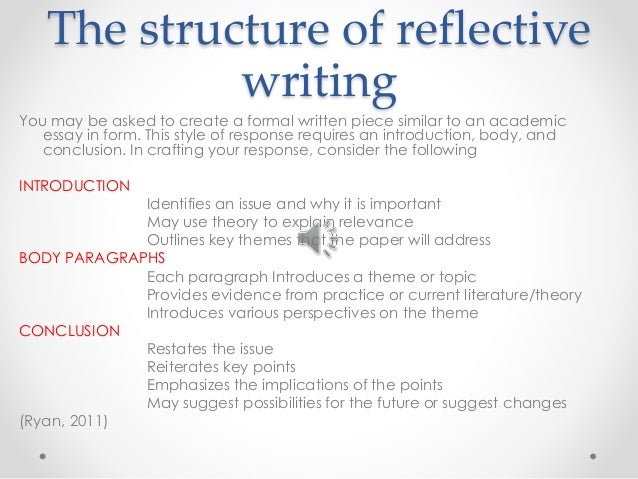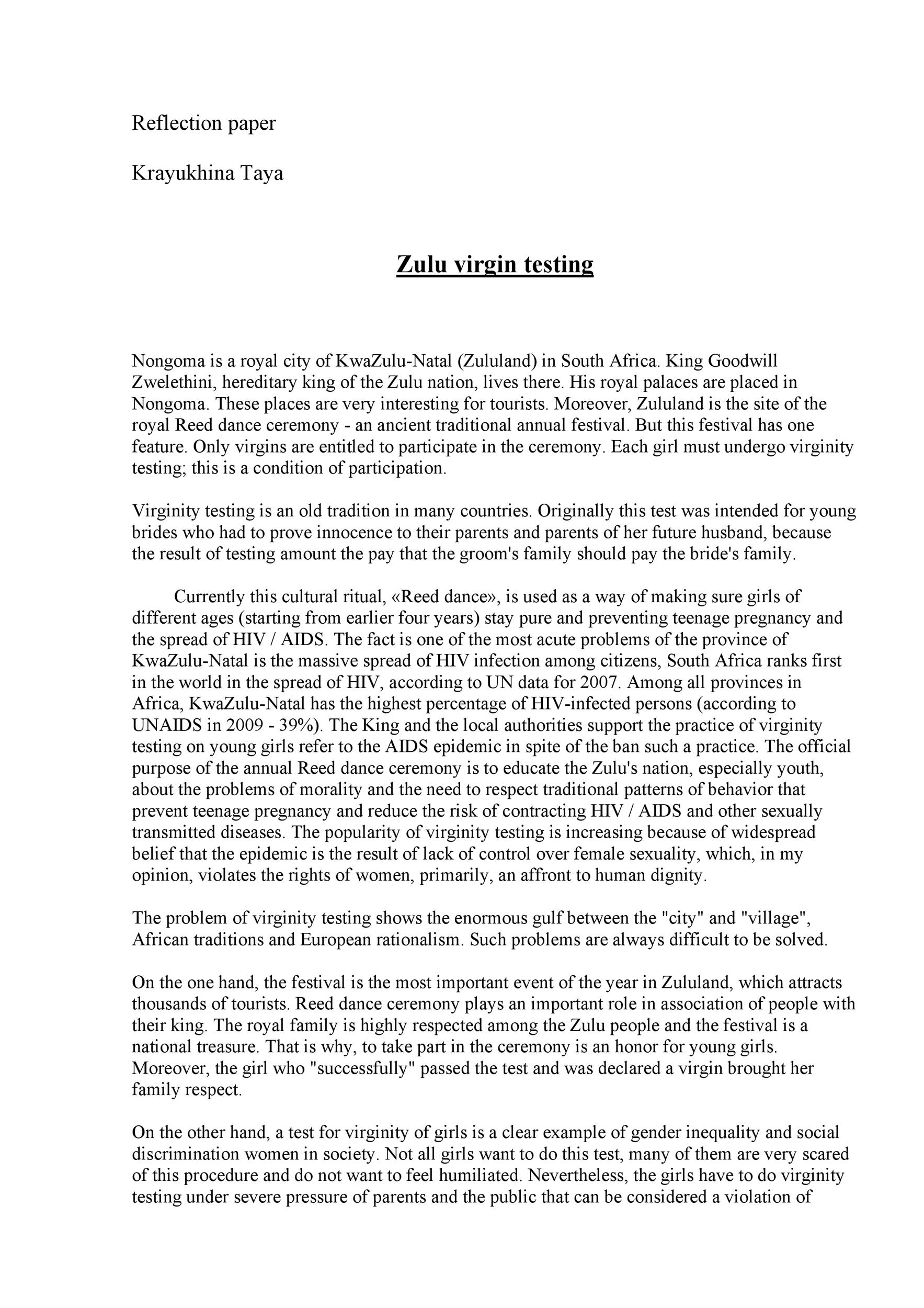
To sum up responses to the question, then, reflective writing benefits students because it Helps students identify their tacit knowledge as well as gaps in that knowledge Brings to the surface rhetorical and writing process decisions that can focus subsequent revision or learning The purpose of reflective writing is to interrogate your own learning and demonstrate the ability to apply theory or conceptual processes to your practice or task in a meaningful way. Whether you’re training to be a health specialist, a lawyer, a scientist, a business person, an engineer, a teacher, a historian or any other professional, you will be expected to be a reflective blogger.com Size: KB They might think of this as useless work or a waste of time but for many writing reflection is a technique for students to grow as learners, in which it enhances their learning and understanding by making them think deeply in the subject. Reflections are used by the teacher to help students understand better what and why they did
The Importance of Reflective Writing | University of Technology Sydney
You need to develop your ability to adapt the way you learn in order to survive and thrive. This ability is called Learning Power. But having your strengths and weaknesses laid bare can often be confronting. Sometimes the importance of reflective writing might disagree with the results or you may not be ready to adapt your behaviour, the importance of reflective writing.
Sometimes you might simply not know what to do next. Reflective writing is a key vehicle for strengthening your Learning Power. It helps to connect our cognitive, logical thinking with how we feel and how we act, so learning becomes about the whole of who we are and not just a split-off part. Catherine Cheung discovered reflective writing could be powerful when trying to unpack her Learning Power The importance of reflective writing. Through additional exploration of what creativity means, Catherine was able to deepen her self-understanding.
She discovered she was 'rule bound' in her learning, the opposite of being creative. Catherine then thought about why creativity would be important for her future as a data analyst. Using sense making like this is one of the benefits of self-reflection. It meant Catherine was the importance of reflective writing to see the connections between what she knew about her learning style now and how it might help or hinder her performance in the future.
Catherine also used self-reflective writing to consider and plan out strategies to improve her creativity. Catherine understood she was constantly changing and adapting as learner and that her strong hope and optimism could be used to develop her creativity. This is an example of Catherine developing resilient agency, something that is fostered through reflective writing.
Over time, someone with resilient agency develops the ability to respond to complex conditions in a beneficial way. They can mindfully transform adverse situations into growth and wellbeing. Catherine started the task thinking it would be a challenge but was able to turn the experience into one that aided her growth and wellbeing positively.
Drawing on her mindful agency she refreshed her purpose and considered her future as a data analyst and a life-long learner, the importance of reflective writing. Engaging in reflective writing to support your Learning Power can crystallise learning processes and outcomes in your mind and helps to rearrange the files of learning, reducing confusion and clearing mental pathways. UTS acknowledges the Gadigal people of the Eora Nation, the Boorooberongal people of the Dharug Nation, the Bidiagal people and the Gamaygal people, upon whose ancestral lands our university stands.
We would also like to pay respect to the Elders both past and present, acknowledging them as the traditional custodians of knowledge for these lands. Home Research and teaching Teaching and research integration Learning Journeys For Students Students: Resources The Importance of Reflective Writing. The Importance of Reflective Writing. Acknowledgement of Country.
Gibbs' Reflective Cycle Explained
, time: 8:47Importance Of Reflection In Writing - Words | Bartleby

To sum up responses to the question, then, reflective writing benefits students because it Helps students identify their tacit knowledge as well as gaps in that knowledge Brings to the surface rhetorical and writing process decisions that can focus subsequent revision or learning The purpose of reflective writing is to interrogate your own learning and demonstrate the ability to apply theory or conceptual processes to your practice or task in a meaningful way. Whether you’re training to be a health specialist, a lawyer, a scientist, a business person, an engineer, a teacher, a historian or any other professional, you will be expected to be a reflective blogger.com Size: KB They might think of this as useless work or a waste of time but for many writing reflection is a technique for students to grow as learners, in which it enhances their learning and understanding by making them think deeply in the subject. Reflections are used by the teacher to help students understand better what and why they did
No comments:
Post a Comment